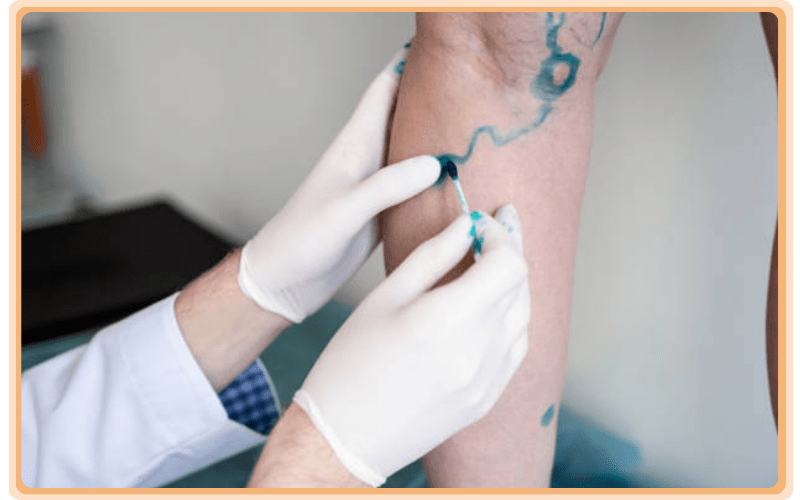Understanding Vascular Surgery: Your Guide to Better Health
At Brahm Chaitanya Super Speciality Hospital in Pimpri Chinchwad (PCMC), our commitment to your health extends to providing the best care in vascular surgery. Vascular surgery focuses on diagnosing and treating conditions that affect the blood vessels—including arteries, veins, and lymphatic vessels—that are crucial for circulating blood and oxygen throughout your body. Here, we’ll help you understand what vascular surgery entails, when it may be necessary, and how it can improve your quality of life.
What is Vascular Surgery?
Vascular surgery is a specialized field of medicine that treats diseases of the vascular system. It encompasses both surgical and minimally invasive procedures designed to address conditions that can compromise blood flow. Conditions treated in this field range from blocked arteries and varicose veins to aneurysms and deep vein thrombosis (DVT).
Our expert team of vascular surgeons at Brahm Chaitanya Super Speciality Hospital uses cutting-edge technology and advanced techniques to ensure safe, effective treatment tailored to each patient’s unique needs.
When is Vascular Surgery Needed?
You might require vascular surgery if you experience:
- Peripheral Artery Disease (PAD): Blockages in the arteries that restrict blood flow to the limbs, often causing pain or difficulty walking.
- Aneurysms: Abnormal bulges in arteries that, if untreated, could rupture and cause life-threatening complications.
- Varicose Veins: Enlarged, twisted veins that can cause discomfort, swelling, and even skin ulcers.
- Carotid Artery Disease: Narrowing of the arteries in the neck, which supply blood to the brain and can lead to strokes.
- Deep Vein Thrombosis (DVT): Blood clots in the veins, usually in the legs, which may travel to the lungs and cause pulmonary embolism.
- Chronic Venous Insufficiency: A condition where veins in the legs fail to circulate blood properly, leading to swelling, pain, and skin changes.
What to Expect During Diagnosis
At Brahm Chaitanya Super Speciality Hospital, our diagnostic approach includes:
- Detailed Medical History: Understanding your symptoms, lifestyle, and family medical history.
- Physical Examination: Checking for signs of poor circulation, such as discoloration, swelling, or non-healing wounds.
- Non-Invasive Tests: Procedures like Doppler ultrasounds, CT angiography, and MR angiography help visualize blood flow and pinpoint blockages or abnormalities.
- Invasive Tests: If necessary, angiograms may be performed, where a special dye and X-rays are used to examine blood vessels.
Treatment Options in Vascular Surgery
The treatment plan depends on the specific condition and its severity. Common approaches include:
- Lifestyle Changes: In early stages, adopting a healthier lifestyle with proper diet, exercise, and smoking cessation can improve vascular health.
- Medications: Drugs to lower blood pressure, cholesterol, or prevent blood clots may be prescribed.
- Minimally Invasive Procedures:
- Angioplasty and Stenting: A tiny balloon is used to open a blocked artery, and a stent is placed to keep it open.
- Endovenous Laser Treatment (EVLT): Used for varicose veins, this procedure closes damaged veins using laser energy.
- Surgical Procedures:
- Bypass Surgery: Creating an alternate pathway for blood flow using a graft.
- Aneurysm Repair: Removing or reinforcing a weakened section of an artery.
- Vein Stripping: Removing problematic veins to alleviate symptoms and prevent complications.
The Benefits of Vascular Surgery
Vascular surgery can:
- Restore proper blood flow and oxygen delivery to affected areas.
- Alleviate pain and discomfort associated with vascular conditions.
- Prevent severe complications such as stroke, heart attack, or amputation.
- Improve overall mobility and quality of life.
At Brahm Chaitanya Super Speciality Hospital, we take pride in offering patient-centered care to achieve these outcomes.
Recovery and Post-Surgery Care
Recovery depends on the type of procedure performed. While minimally invasive treatments often have shorter recovery periods, surgeries like bypass might require more time and rehabilitation. Key aspects of recovery include:
- Follow-Up Appointments: Regular visits to monitor healing and ensure successful outcomes.
- Lifestyle Modifications: Continuing with heart-healthy habits is crucial to maintaining long-term vascular health.
- Medications: Taking prescribed medicines as directed to prevent recurrence or complications.
- Physiotherapy: In some cases, physical therapy may be recommended to regain strength and mobility.
Why Choose Brahm Chaitanya Super Speciality Hospital?
- Experienced Specialists: Our vascular surgeons are highly skilled in diagnosing and treating even the most complex vascular conditions.
- State-of-the-Art Facilities: We use the latest technology for accurate diagnosis and effective treatment.
- Comprehensive Care: From diagnosis to recovery, our team provides holistic care tailored to each patient.
- Patient Education: We believe in empowering patients with knowledge to make informed decisions about their health.
Take the First Step Towards Healthier Blood Vessels
Vascular health is essential for overall well-being. If you’re experiencing symptoms like persistent leg pain, swelling, or numbness, don’t ignore them. Early diagnosis and treatment can prevent complications and significantly improve your quality of life.
Visit Brahm Chaitanya Super Speciality Hospital in Pimpri Chinchwad (PCMC) to consult with our vascular specialists. Together, we can create a personalized treatment plan that suits your needs and helps you live a healthier, more active life.

